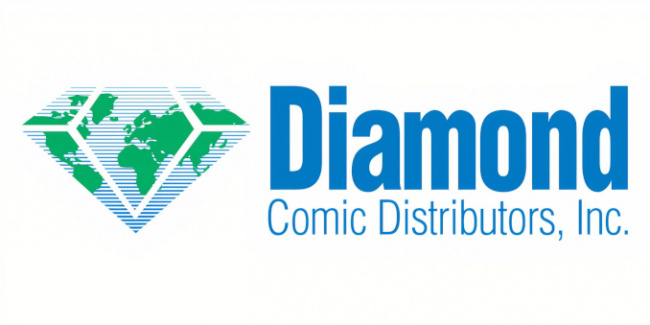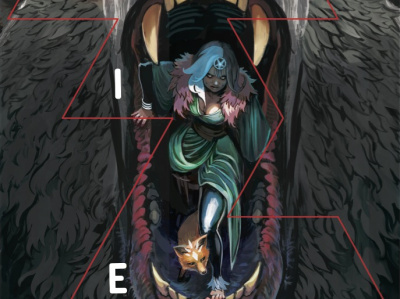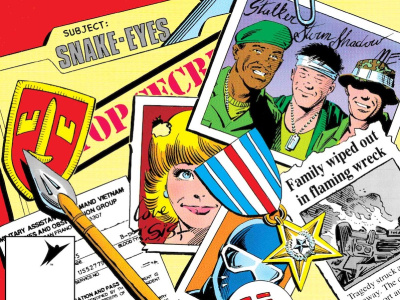Rolling for Initiative is a weekly column by Scott Thorne, PhD, owner of Castle Perilous Games & Books in Carbondale, Illinois and instructor in marketing at Southeast Missouri State University. This week, Thorne looks at the slow-moving train wrecks that are the tariffs being imposed on imports, and the Diamond Chapter 11 bankruptcy.
Being in the gaming and comics industry today is like watching a train wreck happening in slow motion. You can see it coming, but there does not seem to be anything you can do about it. Take tariffs. As of the time of the writing of the column (February 1), the Trump administration had not announced whether it would enact the 25% tariffs it had stated it would put in place against Canada and Mexico, and 10% tariffs on Chinese imports (see "Made in the USA"). I have heard that the tariffs go into effect today, that they have been moved back to March 1, and that advisors have convinced the President to hold off announcing them and negotiate with the three countries further.
If the tariffs go into effect, without exemptions, prices for all American consumers will go up, as 25% of fresh produce consumed in the U.S. comes from Mexico and 20% of U.S. oil comes from Canada (the U.S. is the world’s top energy producer but Midwestern refineries are better configured to refine Canadian oil than U.S. oil). It is really hard to run a business with this much uncertainty.
However, the biggest hit to the comic industry would come from Canada as most comics are printed there (see "Where Are American Comics Printed"). An immediate 25% increase in cost is going to hurt and we will have to see a corresponding increase in cover prices very soon.
The game industry is better positioned to deal with any tariffs imposed by the Trump administration on China, even though most board, card and dice games are produced there. A 10% increase is easier to deal with than a 25% one, and most board and card games are printed without an MSRP so adjusting the prices would face less resistance. Increasing the cost on a $20 game to $22 is far less disruptive than is increasing the $2 cost of a comic by 25% to $2.50. The comic industry relies on bulk purchases of a low-priced item while game customers generally purchase a single game at a higher price point.
Equally disrupting is the faltering of Diamond Comic Distributors. Again, all the individual store can do is watch the slow crumbling of a company that formed, for good or ill, the bedrock of the comic industry. From the late 1990s until earlier this decade, if a store wanted to carry comics, it had to have a Diamond account. No if, ands or buts. Now, to continue the metaphor, there are increasingly wide cracks in that bedrock.
Unlike tariffs, though, stores can respond to the Diamond situation, although not in ways that help Diamond survive. More publishers are leaving Diamond for Lunar Distribution and Penguin Random House, and retailers are looking at other sources for products, and for comic management software to replace ComicSuite, such as ComicHub, Comic Shop Assistant or Manage Comics.
While stores and publishers are doing what is best for their individual operations, each defection hurts Diamond a bit more. Marvel Comics, DC Comics, Image Comics, BOOM! Studios, etc. will be fine, it is the really small publishers that will be hurt, as Diamond provided a source for comic shops to buy those publishers’ products, along with their orders for DC, Marvel, etc. According to the Baltimore Banner, if Diamond is unable to restructure or find a buyer by April 1, it will have to close all operations and lay off all employees, not an outcome anyone wants to see.
Comments? Did we get a tariff? Send them to castleperilousgames@gmail.com.
The opinions expressed in this column are solely those of the writer, and do not necessarily reflect the views of the editorial staff of ICv2.com.

Column by Scott Thorne
Posted by Scott Thorne on February 3, 2025 @ 1:40 am CT
MORE COMICS
New 'Die' Story Out in November, Alongside 'Die Quickstart RPG Guide'
August 11, 2025
The Die: Loaded #1 will be released in November 2025, the same month as The Die RPG Quickstart Game Guide.
'Hama Files Editions' Will Include a Letter from the Creator
August 11, 2025
Each issue of the Hama Files Editions will include a letter from Hama with background information about the comic.
MORE COLUMNS
Column by Scott Thorne
August 11, 2025
This week, columnist Scott Thorne notes a new twist in the Diamond Comic Distributors saga and shares his thoughts on the Gen Con releases that will make the biggest impacts.
Column by Jeffrey Dohm-Sanchez
August 7, 2025
ICv2 Managing Editor Jeffrey Dohm-Sanchez lays out the hotness of Gen Con 2025.









